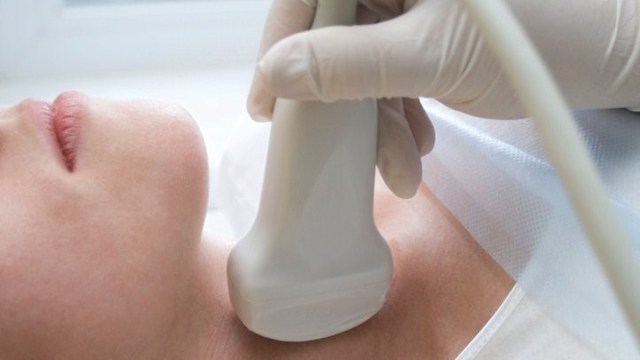Prescription thyroid medications for hormone supplementation may be synthetic, natural (tablets made from pig thyroid gland) or bioidentical (made at a compounding pharmacy). So what’s the difference, and are some better than others? The answer depends on the individual patient’s needs.
Levothyroxin, which is marketed under the brand names of Synthroid™, Levoxyl™, and others, is a synthetic drug that is prescribed by many doctors for their patients with diagnosed hypothyroid conditions. Levothyroxin contains T4, which is the storage form of thyroid that is produced by the thyroid gland. The reason this drug has traditionally been prescribed is that under proper conditions the body converts T4 to T3, which is the active form of thyroid that you need to relieve the symptoms of hypothyroidism. For some, levothyroxin works well as a treatment; for others, however, this “T4 only” medication may yield limited results.
The problem that too many doctors overlook is that many patients have difficulty converting the storage form (T4) to the active form (T3) and therefore still have many of the symptoms of hypothyroidism even though they’re taking a proper dose of medication to treat it. This treatment can be made more effective by adding a synthetic form of T3 called Cytomel. If Cytomel is not given in this case, the next step a doctor may take is to prescribe statins for the high cholesterol, antidepressants for the fatigue and depression, and a range of other drugs to try to address the symptoms that may simply be the result of a poorly treated thyroid condition.
Another option is natural thyroid medication made from desiccated pig glands and marketed under the brand names of Armour Thyroid™, Nature-Throid™, Westhroid™, and others. These medications contain both T4 and T3 and many patients respond very well to them. The dosage is easy to adjust as patients report their symptomology once they’ve begun treatment, and this medication has been an excellent help for millions of thyroid disease patients. One disadvantage to this medication is that the ratio of T3 to T4 is fixed–it isn't possible to "tweak" one or the other to achieve an optimal balance for the patient. All of these brands are essentially the same, with the exception of the fillers or the binders used in their manufacture. With some patients I do avoid using animal thyroid if the patient has autoimmune diseases such as Hashimoto's or rheumatoid arthritis because it can add to the inflammatory process if the patient's antibodies react to the animal thyroid.
Compounding pharmacies can also make a synthetic bioidentical form of T3 and T4. These can be a great advantage for those who need to optimally balance the amounts of the thyroid hormones in their bodies because the medications can be specifically tailored to the patient’s needs. This is also a good option for those people who may need to have their medications adjusted frequently. For example, I’ve found that people with Hashimoto’s disease may need to change their dosages when they go through times of unusual stress. Under stress their bodies produce more TPO antibodies that can attack the thyroid gland and inhibit its proper function, causing the patient to exhibit signs of fatigue. They’ll need a higher dose of either T3 or T4 or both T3 and T4 when that happens and we can make that adjustment with the compounding pharmacy. The advantage of using a compounding pharmacy for this is that unlike Armour Thyroid, the individual amounts of T3 and T4 can be adjusted if needed.
To illustrate this, I have a patient with Hashimoto’s disease who is a school teacher. Most of the year she’s fine, but when fall comes around and it’s time to start the school year she starts getting very fatigued. The added stress of the new students usually means we have to adjust her medication to be able to function at her optimal level. Because the bioidentical hormones she uses can be tailor-made for her, we are able to quickly and easily adjust her medications to suit her needs.
Dr. Tina Marcantel is a naturopathic doctor practicing in Gilbert, Arizona. For more information about her practice and to read many more articles by Dr. Marcantel, please visit her website at http://www.drmarcantel.com.





Add a Comment7 Comments
What natural supplement would you recommend taking if the entire thyroid was removed? It wasn't cancer but now I'm on 125 MCG of Levothyroxine daily. This, I understand, has animal hormones in it. I don't think I want to take this. It's the day after Thanksgiving and my surgery was Nov. 5th. My post op phone call isn't until Dec. 1st. I'm just tired and chilly more than ususal.
November 28, 2015 - 12:05amThis Comment
Not all conditions have credible natural remedies for health concious people to use. Hypothyroidism though has a number of natural thyroid treatment that are effective.
Connie Myers
May 31, 2011 - 11:45pmThis Comment
Does anyone get strong foul smelling urine using Westhroid and Armour? I do but not with Thyrolar (which I couldn't get the last time my pres. needed to be refilled.
October 17, 2010 - 10:26amThis Comment
Jacquelinenh, we ARE in the middle of a shortage of natural thyroid. However, you can get it made at a compounding pharmacy or even get a prescription for "Thyroid" by Erfa (in Canada). Many people are finding success with Canada's Erfa product. Some Armour has made its way back to the pharmacy shelves. But, only in small dosages (eg. 60 mg. is available at a few pharmacies I've checked with - but, that's just a fraction of the 210 mg I take).
The problem with the article that you posted is their misinformation about using TSH as a measure of thyroid levels. Unfortunately, almost all endocrinologists use the same practice. Here is what ALL doctors SHOULD be looking for instead: http://www.stopthethyroidmadness.com/recommended-labwork/
It's very sad that doctors have completely lost the "art" of medicine when it comes to thyroid treatment. Before the days of labs, doctors treated thyroid by treating the patient's symptoms - and had very good success. They used natural desiccated (dried) porcine (pig) hormones (basically Armour Thyroid) and patients had RELIEF. These days, doctors treat the labs and not the patient. I lived with symptoms for years before finding out this was WRONG and I didn't HAVE to live that way.
I recommend this website (and ALL that's in it) to everyone: http://www.stopthethyroidmadness.com . It saved me.
October 30, 2009 - 1:58amThis Comment
RacerWife,
You're exactly right about doctors missing thyroid disease by relying too heavily on certain tests. It's very important to pay close attention to the symptoms a patient is presenting. Also, an often-overlooked test that's a very good indicator for Hashimoto's disease (one type of hypothyroidism) is elevated TPO antibodies. See my article on how your doctor might miss your hypothyroidism: https://www.empowher.com/news/herarticle/2009/09/17/are-you-antidepressants-when-real-problem-your-thyroid-gland?page=0,0
I also agree that stopthethyroidmadness.com has great information. It's a site most doctors could profit from, as well, to gain more information on hypothyroidism.
October 30, 2009 - 6:54amThis Comment
I WISH there were more doctors with your mindset in my area. They are few and FAR between here. There are LOTS of endos here. But, they all have the same beliefs. I ditched my endo the second he told me, "I can change you from Levoxyl to Armour. But, it won't make a difference. Your TSH levels are fine." <---That was the last time I ever talked to him. I changed doctors immediately. And, fortunately, I now see an internist/holistic doctor (NOT an endo) who manages my thyroid and Hashis much better than any endo ever did before. We still have work to do. But, I have to say, by the time I was on my 3rd day of Armour, I already started feeling MUCH different. I was amazed at the difference, actually. I hadn't expected to notice anything for a few weeks. Natural thyroid is the best remedy and the proper tests and symptom treatment is crucial. ;)
Thanks! Have a great weekend!
October 30, 2009 - 7:37amThis Comment
I have Hashis and was on synthetics for 20 years. By year 18 I had all kinds of hypo symptoms including hair loss, depression, low temperatures, inexplicable weight gain, foggy/fuzzy thinking (brain fog) and I had begun having symptoms of perimenopause - hot flashes, night sweats, erratic menstrual cycles. And the worst symptom of all - CRASHING fatigue. All it took was 15 minutes of playing with my 3 year old son and it would take 3 days for me to recuperate.
I went to 3 different doctors: my gynecologist (maybe it's perimenopause?), my endocrinologist (maybe my thyroid meds aren't working properly?), and my general practitioner. NOT ONE of them helped me. I was lucky I found information online that helped me to realize that (1) I was on the wrong medication (synthetics are CRAP), (2) I needed to find a different doctor to treat my hypothyroidism/Hashis, and (3) my new doctor needed to treat me based on my symptoms (NOT solely on TSH levels) and also do the CORRECT blood testing (FT3, FT4 - NO TSH testing for thyroid levels). It took me 2 years to find all this out (ON MY OWN - NO thanks to ANY doctor I had). And 2-1/2 years ago I finally got put on Armour Thyroid.
Those synthetics might SEEM like they're working okay. But, they're NOT. After only 3 days of being on Armour Thyroid, I finally started to feel like myself again. I still have some ground to cover - my adrenals were severely taxed by 20 years of taking Synthroid and Levoxyl. So, I don't have my thyroid quite where I'd like it. But, I'm getting there.
October 23, 2009 - 12:54pmThis Comment